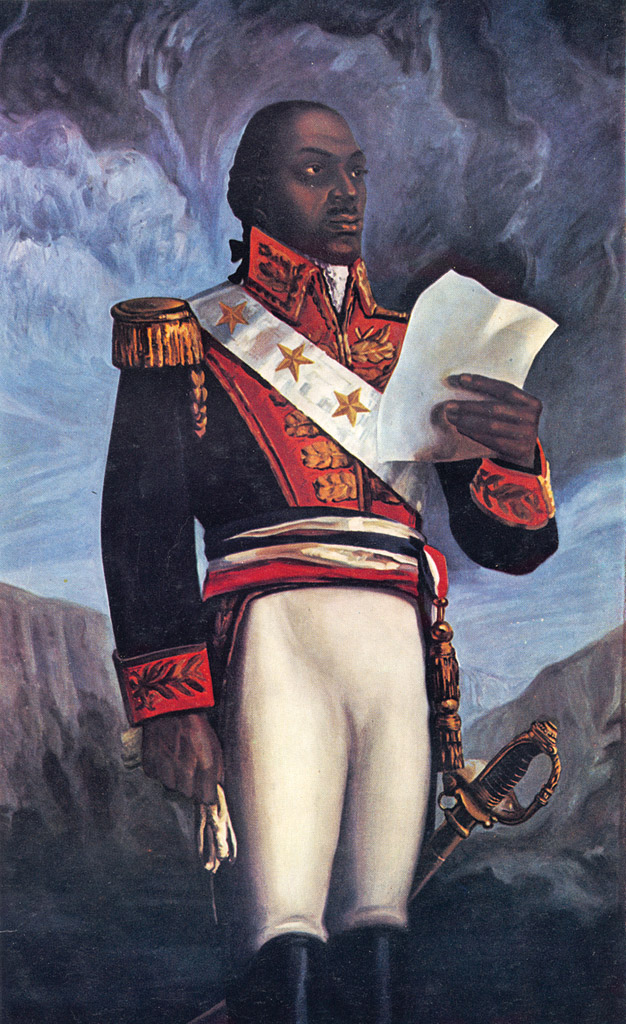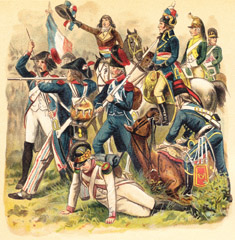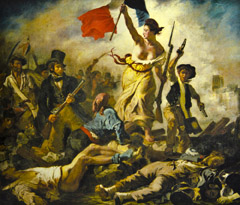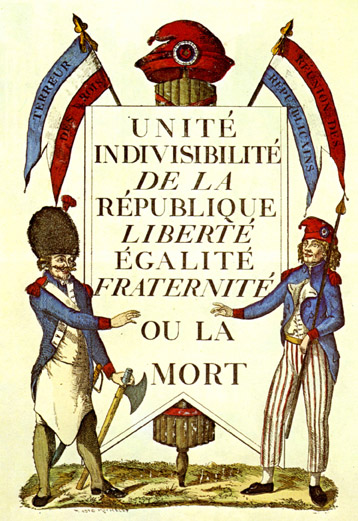13.2a Role of progressive ideas in major social upheavals: Ideology
The War of American Independence (1776–83)
The war between Great Britain and its American colonists sent shock waves throughout Europe.
Here were people putting into practice Enlightenment ideas, such as those spread by Tom Paine, claiming that everyone was created equal and seeking the right to representation in their own government. Colonists refused to pay taxes without representation. France aided the American revolutionaries, which led to the spread of revolutionary ideas in France, such as the notion of republicanism and liberal freedoms. As a result of the American War of Independence, America became a democratic republic, thus offering a model for other countries to seek to follow. The idea of a republic was not new, however, as it drew on the republics of ancient times, such as Greece and Rome.
DEVELOPING YOUR UNDERSTANDING 13.3
The United States Declaration of Independence states that ‘all men are created equal’:
We hold these truths to be self-evident, that all men are created equal; that they are endowed by their creator with certain unalienable rights; that among these are life, liberty and the pursuit of happiness.
- Explain what you think this statement means.
- Assess whether you think this statement includes women or slaves.
Did you know that the American War of Independence was sparked by a ‘tea party’? Instead of drinking it, American patriots in Boston threw tea overboard in retaliation to the British government’s tax on tea.
The French Revolution (1789)
Enlightenment thinking was also a crucial factor in the French Revolution, which was perhaps the most important revolution of modern history. It is one of the most dramatic examples of an absolute monarchy and a strong aristocracy giving way to the inclusion of citizens in their own government.
The French Revolution shaped, and continues to shape, many social and political ideas, including the right of citizens to determine their own futures, and a strong sense of the nation. The early catch cry of the revolutionaries, ‘Liberty, equality and fraternity – or death’, has been taken up by many activists over the centuries. It is a cry for democracy and the overthrow of oppressive leaders.
The French revolutionaries also drew up a Declaration of the Rights of Man and Citizen (1789), which stated, ‘Men are born and remain free and equal in rights’ and also, radically, ‘Liberty consists in the ability to do anything which does not harm others’. In accordance with this manifesto, many radical laws were passed, including the abolition of slavery in French colonies in 1794. Yet despite these innovations, the French Revolution was a violent time, as successive waves of ‘reformers’, trying to prove their ‘progressive’ credentials and hatred of monarchy and privilege, annihilated those who went before. The hated symbol of the Revolution – the guillotine – is a permanent reminder of the potential of revolutionary ideas to work for evil as well as good. The spirit of revolutionary times can be seen in the lives of two key individuals, Marie Olympe de Gouges and Toussaint L’Ouverture, who were part of the major progressive movements of their times.
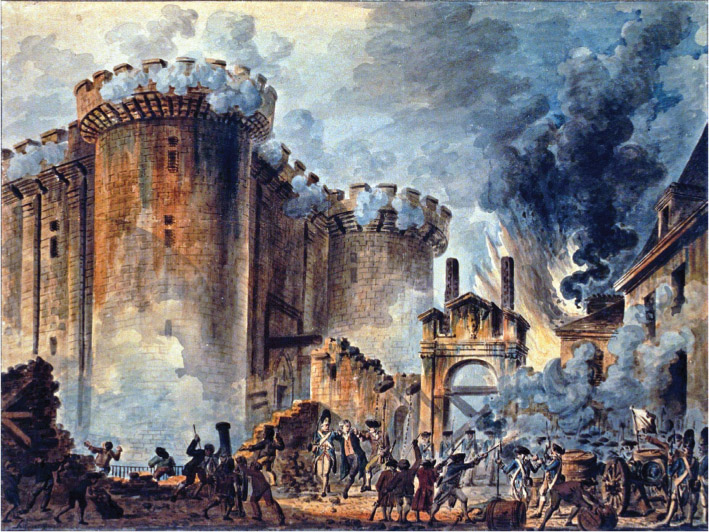
Marie Olympe de Gouges (1748–93)
Marie Olympe de Gouges, born in Montauban, lived in Paris during the French Revolution.
She was a playwright, a philosopher, a fighter for the abolition of slavery and an advocate for women’s rights. Like her English contemporary Mary Wollstonecraft, de Gouges wrote one of the founding documents of feminism, The Rights of Women and of the Female Citizen (1791), which boldly claimed: ‘Woman is born free, and remains equal to man in rights.’ This was a radical statement for her time. She also proposed that marriage should be based on gender equality.
Her outspoken criticism of the violent acts of some of the revolutionaries resulted in her own death by the guillotine in 1793.
Toussaint L’Ouverture (1743–1803)
The ferment of ideas stirred up by the American War of Independence and the French Revolution spread like wildfire. In the French colony of Saint-Domingue (now Haiti) in the Caribbean, former slave Toussaint L’Ouverture led an independence movement that emancipated all the slaves. For a brief time Haiti became a French protectorate governed by black former slaves. The success of this Haitian revolution reverberated around the world and was an early victory for anti-colonialism.
However, it did not last. Napoleon Bonaparte, seeking to restore slavery to French colonies, trapped and captured L’Ouverture, who died in exile.
